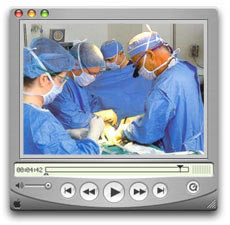Choose the Best Tubal Reversal Doctor
If you're considering having your tubes untied, knowing what questions to ask is key. Dr. Berger and the staff at Chapel Hill Tubal Reversal Center have put together some frequently asked questions to help you make the right tubal reversal decision. Reversing your tubal ligation is an important decision. Why trust anyone but the best with your health?
When women begin researching tubal reversal surgery, there are several questions that are frequently asked. These questions are typically based on the differences that become apparent when they compare various facilities and doctors.
“How do I choose a doctor?” Considering the number of choices, it is one of the most important questions to consider before a woman moves forward with planning her tubal reversal procedure. Training, experience, availability, and patient support can vary greatly between doctors and facilities.
Most women who research the option of tubal reversal surgery after a tubal ligation are interested in how many reversal procedures the doctor has performed. Many reproductive surgeons have performed a tubal reversal procedure, but few perform the procedure routinely and even fewer limit their practice to this specialty. In the case of tubal reversal surgery, experience is an important factor in predicting the outcome of the procedure. Chapel Hill Tubal Reversal Center is the only medical facility specifically for tubal ligation reversal surgery. Dr. Gary Berger performs 4 reversals a day and has performed more than 7000 reversal procedures in his career.
Another question women frequently ask is whether the doctor uses the dye technique or a stent to ensure the tubes are open following surgery. The use of the dye technique is not the most accurate indicator regarding whether the tubes are open following tubal repair to allow conception. The stent technique is the better approach in our opinion to avoid any doubt. The stent is sterile and does not pass through the cervix. The stent not damage the tubes, and it ensures that they are open so a dye test is not necessary. With the stent technique used by Dr. Berger, there is no question regarding tubal patency following surgery, which puts the woman in a much better position for achieving pregnancy following surgery.
A common question during the process of researching tubal reversal facilities is whether the doctor uses permanent or absorbable suture to repair the fallopian tubes and whether he or she reconnects each of the tubal layers. While some doctors may suture all of the tubal layers, Dr. Berger uses permanent suture and sews the muscular and outer serosal layers together. He does not place suture in the inner endothelial layer as this may increase the risk of scar formation within the tubal lumen. In Dr. Berger’s opinion, this is the best approach. Comparing doctors’ data regarding pregnancy outcomes is the best way to assess their techniques since high pregnancy rates are a clear indication that the techniques are successful.
Ultimately, the most frequently asked – and most important - question regarding tubal reversal surgery is, “What are the doctor’s success rates”. Since pregnancy and its outcome are the primary concerns of most women who choose the reversal procedure, the answer to this question should be based on accurate statistical data. On the Internet, claims about tubal reversal pregnancy rates are often made without supporting information or documentation - such as a description of the patient population, study method, and follow-up interval. At Chapel Hill Tubal Reversal Center, Dr. Berger and his staff do everything possible to obtain and report this information on an ongoing basis. This allows them to remain informed about the number of pregnancies achieved and what their outcomes were after tubal reversal and to answer questions and guide patients who are waiting to become pregnant.
The decision to undergo surgery to restore fertility after a previous sterilization is a serious one for any couple. Where to go for surgery and with whom care will be entrusted is an important part of that decision. Potential patients should expect that they have been given detailed, accurate information regarding costs and recovery times, as well as careful analysis and reporting of accurate statistics regarding pregnancy and birth rates. This is referred to as “evidence based medicine” and is consistent with the mission of Chapel Hill Tubal Reversal Center. It is one of the many reasons why the facility has become known as the best place to have tubal reversal surgery.


No comments:
Post a Comment